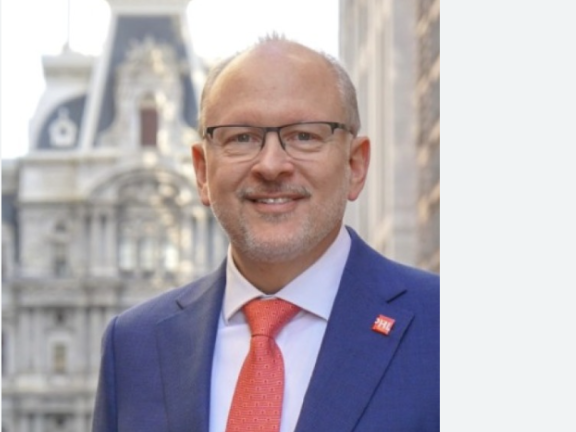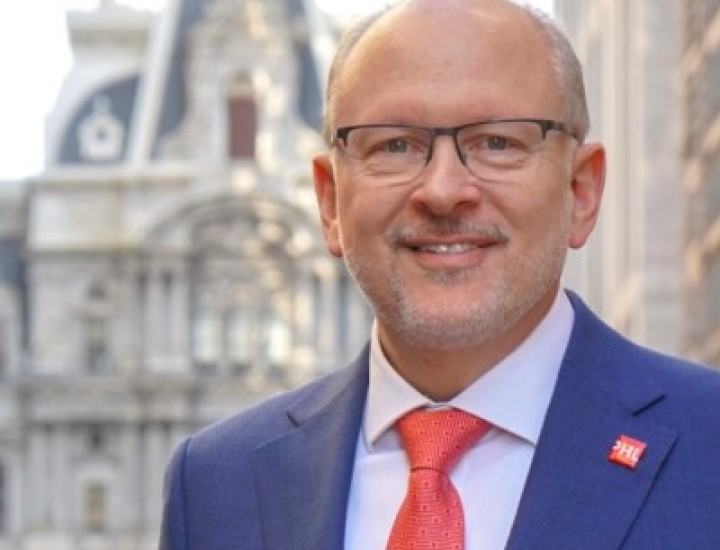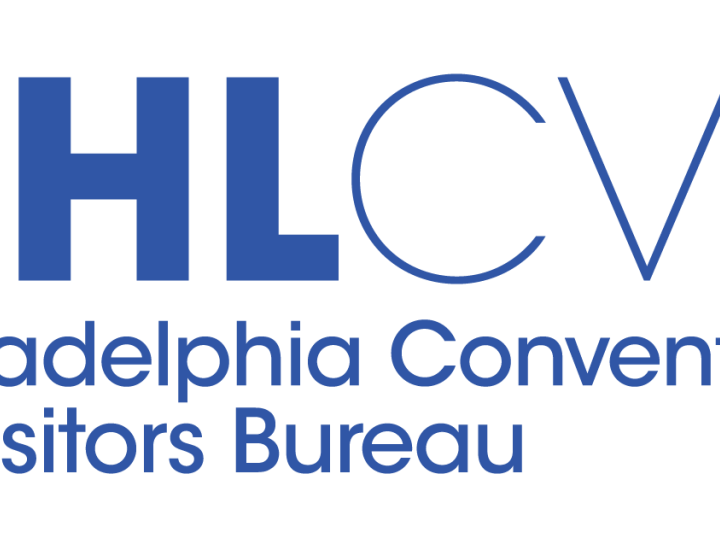A Global Conversation with Gregg Caren

As the President and CEO of the Philadelphia Convention and Visitors Bureau (PHLCVB), Gregg Caren is deeply ingrained in Philadelphia’s tourism initiatives and a leader in promoting our city’s image across the globe, highlighting Philadelphia’s extensive advantages and encouraging international travel and business events to take place within our convention center and hospitality community. A native New Yorker, Caren has called Philadelphia home for over 30 years. With over 26 years of experience in hospitality, tourism, and venue management, including his previous long-term role as the Executive President of Sales and Strategic Business at ASM Global (formerly SMG), Caren has brought global-mindedness and an appreciation for Philadelphia into his position with the PHLCVB since joining the organization in 2020.
Caren serves on the board of directors for the Professional Convention Management Association (PCMA), the U.S. Travel Association (USTA), the Philadelphia Visitor Center Corporation (PVCC), and represents the PHLCVB as a member of the Meetings Means Business Coalition. He graduated from Penn State University with a Bachelor of Science degree in Hotel, Restaurant, and Institutional Management.
GPA had the pleasure of speaking with Caren as this year’s Corporate Leadership Globy Awardee. He shared what brought him to his current role, the initiatives he has been involved in, and his love for his position and city. His reflections tell the story of a devoted Philadelphian and a leader learning from invaluable cultural experiences and looking forward to the many exciting events and developments to come for our city.
Madi Costigan: Can you describe your career path and previous positions in the event management and tourism industry?
Gregg Caren: I used to work for the company that manages our Pennsylvania Convention Center. For many years that company was called SMG, and more recently it is known as ASM Global. I oversaw a portfolio of about 100 convention centers all over the world. This is one reason I am globally versed, because I had venues not only across North America, but also Panama, Jamaica, Beijing, Shenzhen, and Europe. There's a very close linkage between convention centers, which are the deliverable product, and convention and visitors bureaus (CVBs), which are the sales and marketing arm. Our primary function here at the PHLCVB is to fill the Pennsylvania Convention Center, which then in turn fills hotels, restaurants, and museums, generating jobs, tax revenues, and economic impact.
I spent 22 years with ASM Global and am very proud of our accomplishments. But when this opportunity to focus on promoting my adopted hometown presented itself, I found it very exciting. I'm a native New Yorker but have lived in the Philadelphia area for 30-plus years. It was really appealing to me to think about taking my former experience, where I was engaged all over the world, and focus on just one city – this great city - instead of 100.
How did that path specifically lead you to this position and how have you found it to be different from your previous experiences?
When the search process started, it was January of 2020. All was right with the world, not just in Philadelphia, but nationally. It was one of the best years ever for hotels and tourism in the city. And of course, the world came tumbling down. Hospitality industry associates in particular fell the fastest and hardest. When the entire world shut down, every hotel, every restaurant shut down. At the time I joked that a smarter person would have run back the other way to my corporate role, but the concern for our city and its 80,000 hospitality and tourism workers actually drove me that much more to want to help, to be a part of rebuilding the industry. It really compelled me.
Because the Pennsylvania Convention Center Authority was already a client and partner in my former role, and because of my experience working in so many other markets with convention centers and in partnership with convention bureaus, this job seemed really appealing for me, and apparently appealing to our board to come with that experience, because I've worked with 99 other convention centers, some bigger, some smaller, and probably about 70 convention bureaus. So, it was just a nice complement.
I had never used words like civic pride or civic responsibility about myself. I had used them to describe a lot of other people and recognized that this was my opportunity to give back to the city I love, at its most critical crossroads. And it’s been the best job I think I’ve ever had.
I understand that you hold various board positions with the Professional Convention Management Association, U.S. Travel Association, and Philadelphia Visitor Center Corporation. How have you found these positions to be rewarding? What have you been able to learn from your fellow board members?
I put it into two categories. I certainly serve on a few local boards, like the Greater Philadelphia Chamber of Commerce, the Visitor Center Corporation, and those are critical for our local infrastructure. And I think that our city is in its best place ever for our industry and the related sectors we serve. There is now true alignment between the public sector, private sector, nonprofit sector, hotels, attractions, museums, convention center, City and Commonwealth.
Equally, if not more important, I think, are the industry-related boards that I sit on, that are more national or global themselves by definition. And one in particular is called PCMA, the Professional Convention Management Association. Their members are people that plan and execute meetings and conventions all over the world. Ironically, the association itself was founded in Philadelphia. It will have its 70th anniversary as an organization when they convene here in 2026, just to add to the list of big things coming up that year.
Being engaged with industry groups like PCMA gives us exposure. I do it because I want to support the industry that we're counting on to bring us business. And just by virtue of sitting on that board, it gives Philadelphia that much more notoriety. In January of 2026, PCMA will bring 3,000 meeting planners from all over the world to Philadelphia. The real impact of that is the exposure that we get. To me, that's the “world cup” of business events – our bread and butter business.
I love the local boards, but from a sales standpoint it's critical for me to be out there supporting our industry and drawing attention to Philadelphia.
You are receiving the Globy Award for Corporate Leadership. How would you describe your leadership style?
I tend to reflect in terms of beginnings, both upbringing and career path. I was brought up with the golden rule, both at home and with the first job I ever had with Marriott Hotels. “Treat others as you wish to be treated” was the mantra. And you know, some of the other corporate leadership would say, “treat your employees well and your employees will treat your customers well.” Easy to remember, and easy to see positive results.
To talk about my style, it's probably more casual than formal. Everybody should be talked to the same way. I'm lucky. I learned a lot just by osmosis. My dad was a manufacturer's representative; in more simple words, he was a traveling salesman. And I used to travel with him during the summer and just watch how he conducted himself. He was always all about respect and never trying to get one up on somebody else. That's just a philosophy that drives me. It's just the right way, I think, to behave.
How do you convince potential visitors to choose Philadelphia for their events?
As they say in the Olympics, there are the technicals and the artistics. To me, the technicals are what we call our value proposition, or our sales proposition. If you think about the centrality of Philadelphia, we’re in the middle of the Amtrak Northeast Corridor. We're right on the I-95 corridor and Philadelphia International Airport. We are American Airlines’ largest transatlantic hub. Thus, we offer connectivity to the nation and the world.
The technicals also would include our amazing convention center that the state has invested over $1.5 billion in since its construction and its expansion, and the hotels; we have over 14,000 guest rooms within walking distance of the convention center alone. When we're bringing a meeting planner in, we can show them how many flights a day, how many hotel rooms, how many square feet of convention center space we have. And we're probably the best value price point on the Northeast Corridor when you compare us with our primary competitors: Boston, New York, and DC. Your dollar goes a lot farther in Philadelphia, in our hotels, our restaurants, and the rest of the city.
Then you go to the artistics. For the last two years, we were named America's most walkable city by USA Today readers and experts. If you start at the Schuylkill, at the one of the best art museums in the world and the Rocky Steps, you can walk straight across the city all the way to Penn's Landing, Old Cit,y and the Liberty Bell in an hour. And then you think about weaving through communities, since we're a city of neighborhoods, all of these elements make up our artistics.
When a convention comes to Philadelphia, they typically don't even need transportation. You can walk to dinner. Reading Terminal Market is one of the best public markets in the world. It is authentic. The same Basset family has made ice cream and served it on that massive marble slab for five generations. We have so many historic, arts and cultural institutions and all these things that, when people are done with their meetings and events for the day, everything is right at their fingertips. It's extraordinary.
With such a unique identity, what do you take the most pride in about our city, that goes into convincing visitors to come to Philadelphia?
Until four years ago, I thought City of Brotherly Love was a marketing catch phrase that an ad agency came up with. I learned that it is the literal Greek translation. When William Penn decided how to lay out this city and then what to call it, he was very intentional about what he thought the spirit and the heart of this city should be.
For years, Philadelphians would talk about ourselves as the red headed step child between New York and DC, or punching above our weight class. I remind people to stop and take a step back and think about the last quarter century. We've hosted the RNC, the DNC, the NFL draft, the World Meeting of Families and Papal visit. We’re going to host the World Cup, the largest games in the world, and the Major League Baseball All-Star Game. Oh, and by the way, next year, we're going to host the World Club Cup. We hosted WrestleMania, which filled our convention center, arena and a football stadium for four nights straight and it was a great family event.
The core concept is: we are not the red headed step child between New York and DC. We are a global leader in big events. If you look at everything else the city is known for, we are the seat of Western democracy and the seat of academia, we had the first two conventions in America, two of the first HBCUs in the country, and the first teaching hospital. There are so many things, but you add all that together and it's a very unique package.
There are so many people that come here for one reason or another. And for whatever reason that they connect, they fall in love with the city.
How have you become more globally minded through working with international organizations and traveling?
I joke a lot that next year, I will hit 2 million miles on American Airlines. A lot of that had to do with my former role. And it can take a lot out of you, or you can get a lot out of it.
Our hometown is a microcosm of the world. We have every country represented. The best part about my job has been spending time in these other countries to connect enough to realize that people are people, wherever you go.
Humanity. That's the part that gives me the most hope, even in the most challenging times. But it is always fascinating for me to just see how people behave in business across the globe. I like to think that the most important thing that I bring to the CVB and the city is having background knowledge, history, experience and personal connections. I can go to almost any part of the world and be able to have a social conversation with a new colleague or an existing colleague and talk about my own experiences in their country. There is certainly plenty I don’t know. I've never lived in any of these places long term, but I can go almost any place in the world and have an understanding and appreciation for how their economy works, how their culture works, how they like to do business.




